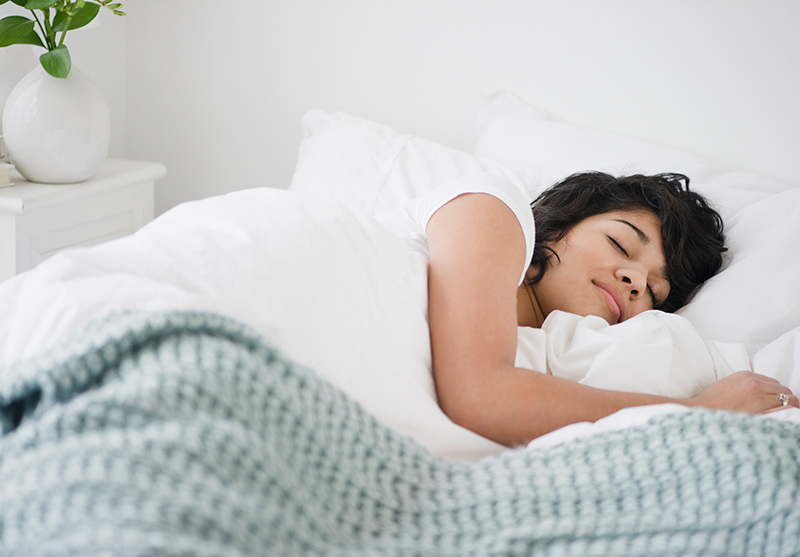Sleep Your Way to a Smarter Brain

Sleep is one of life’s enduring mysteries. But as anybody who has tossed and turned all night may understand, getting enough shuteye is crucial for good health. Did you know that it’s especially important for brain health?
Sleep and your brain
Sleep is absolutely instrumental in cognitive function, mental acuity and the ability to concentrate and learn new things.
During sleep, your brain deals with information received during the day. It consolidates memories and clears plaque-forming amyloids and tau proteins associated with Alzheimer’s disease.
There’s a cleanup process that happens in brains when we sleep. There’s a pressure to sleep, and when you do, that pressure gets dissipated and that’s how you feel fresh in the morning.
REM sleep, or the dreaming phase of sleep, has been shown to enhance learning, memory and emotional well-being.
Sleep disruptions affect your levels of neurotransmitters and stress hormones, which may make it more difficult to think and regulate your emotions.
If you have long sleep but it’s fragmented, you’re interrupting the sleep cycle.
Sleep can affect mental health
Sleep problems may increase the risk of developing certain mental illnesses, such as depression and anxiety. And addressing sleep issues can help improve mental health conditions.
Sleep impacts your health and all bodily systems. There is genetics and there is environment. Sleep is part of the environment that allows your genetic makeup to shine.
Insomnia, or the inability to sleep, is even more harmful to brain health and is being studied more closely as an underlying condition contributing to a wide range of health conditions.
Take action to improve your sleep
Try the following steps to get better sleep.
- Practice good sleep hygiene. Make your bedroom or sleeping space as comfortable, quiet and dark as possible.
- Banish bright light from lamps, TVs, cell phones and other electronic devices. Bright light will suppress the release of melatonin, a hormone that gets your body to fall asleep. Turn off the TV, so your melatonin can rise naturally and you can have a good night’s sleep without any help.
- Skip the stimulants. Although young people may be able to handle a cup of coffee in the afternoon, that may change as they age. Make sure the effects of caffeine have worn off before you go to bed.
- Avoid consuming alcohol too close to bedtime. Alcohol is a sedative, but once it’s metabolized by your body, it creates arousal and you may have more broken sleep.
- Don’t eat heavy meals before bed. While a light snack may be OK, a large meal may trigger acid reflux. Your body processing the nutrients may also disturb sleep.
- Don’t rely too much on sleep aids, which can be addictive. Even melatonin supplements shouldn’t be used regularly. They may help you for a short period, but you need to make sure you’re able to wean off of them. The goal is to sleep naturally.
You should prioritize sleep the same way you do other healthy activities such as exercise and diet.
It’s important for people to be active on most days of the week, not cram it all in on the weekends, and it’s the same thing for sleep. Having adequate sleep every night is really helpful to heart and brain health.






